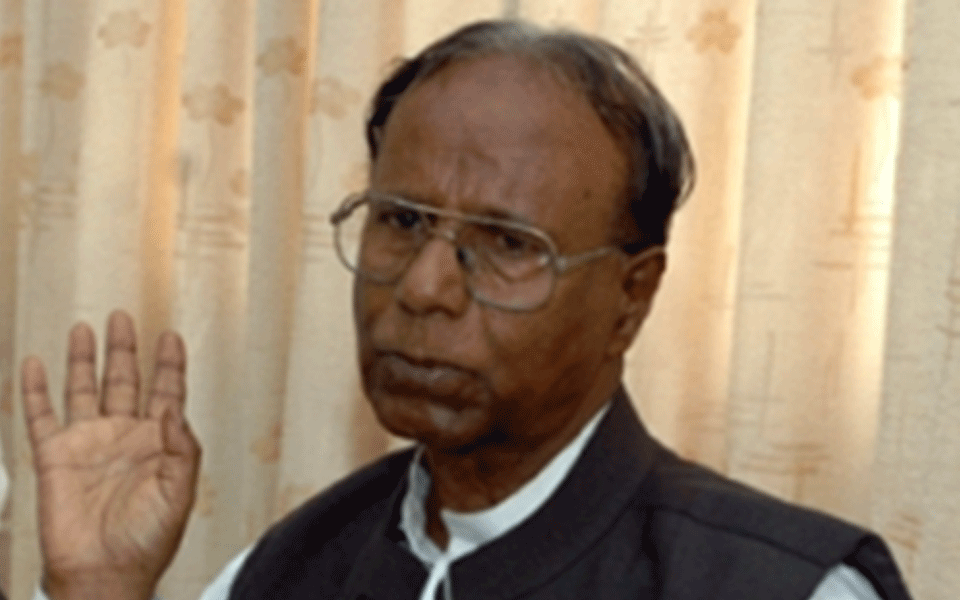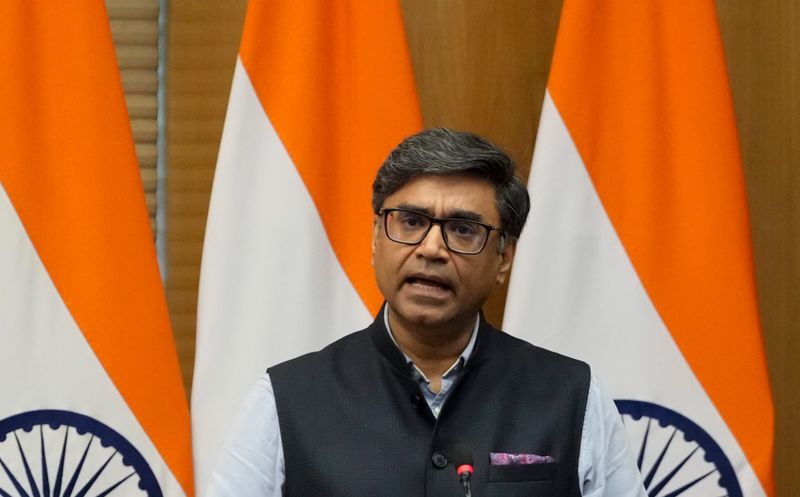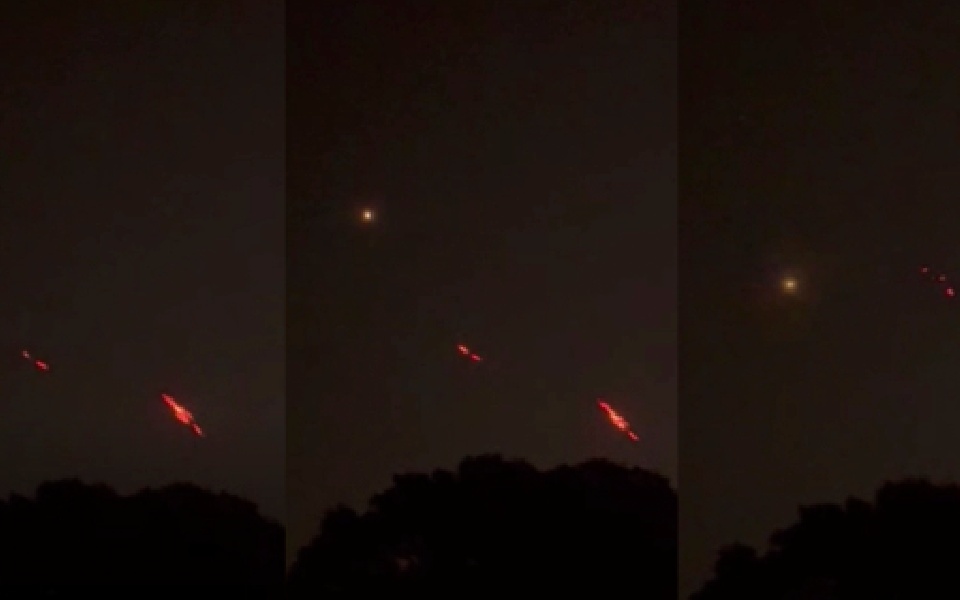Bengaluru: Former Minister, writer, Prof. Mumtaz Ali Khan passed away at his Ganganagar residence in Bengaluru in the early hours on Monday due to illnesses associated with old age. He was 94 years of age.
In 2008, he had been part of Yediyurappa’s Cabinet of Ministers and served as a Minister. He had been the Minister for Minority Welfare, Hajj, and Waqf Account.
After taking voluntary retirement from his profession as a Professor of Sociology in Bengaluru’s Krishi University. For the last 30 years, he had been running a school named after his late son Noor Ahmed Khan in Bengaluru’s R. T. Nagar. In the unaided Primary and High School run by him, Prof. Mumtaz Ali Khan provided the poor children coming to the school with free education along with mid-day meals, school books, school uniforms, and other required items from his pension money and personal sources. His wife was serving as the Head-teacher in the same school.
Prof. Mumtaz Ali Khan is survived by his wife, one son, one daughter.
Let the Truth be known. If you read VB and like VB, please be a VB Supporter and Help us deliver the Truth to one and all.
Dulles (AP): The Trump administration welcomed a small group of white South Africans as refugees, saying they face discrimination and violence at home, which the country's government strongly denies.
The decision to admit the 49 people also has raised questions from refugee advocates about why the group should be admitted when the Trump administration has suspended efforts to resettle people who are fleeing war and persecution and have gone through years of vetting before coming to the US.
The group from South Africa, including children holding small American flags, arrived at Dulles International Airport outside Washington on a private charter plane and was greeted by Deputy Secretary of State Christopher Landau and Homeland Security Deputy Secretary Troy Edgar.
“I want you all to know that you are really welcome here and that we respect what you have had to deal with these last few years," Landau told the group in a hangar at the airport, many of them holding U.S. flags. "We respect the long tradition of your people and what you have accomplished over the years.”
President Donald Trump told reporters earlier on Monday that he's admitting them as refugees because of the “genocide that's taking place.” He said that in post-apartheid South Africa, white farmers are “being killed” and he plans to address the issue with South African leadership next week.
That characterisation is strongly denied by the South African government and has been disputed by experts in the country and even an Afrikaner group.
South Africa's government says the US allegations that the white minority Afrikaners are being persecuted are “completely false,” the result of misinformation and an inaccurate view of its country. It cited the fact that Afrikaners are among the richest and most successful people in the country and said they are among “the most economically privileged.”
Speaking at a business conference in Ivory Coast, South African President Cyril Ramaphosa said on Monday that he spoke with Trump by phone recently and told him that his administration had been fed false information by groups who were casting whites as victims because of efforts to right the historical wrongs of colonialism and South Africa's previous apartheid system of forced racial segregation, which oppressed the Black majority.
“I had a conversation with President Trump on the phone and he asked me, 'What's going on down there?' and I told him that what you are being told by those people who are opposed to transformation back in South Africa is not true,” Ramaphosa said.
Ramaphosa said he thought Trump “understood that.”
Afrikaners make up South Africa's largest white group and were the leaders of the apartheid government, which brutally enforced racial segregation for nearly 50 years before ending it in 1994. While South Africa has been largely successful in reconciling its many races after apartheid ended, tensions between some Black political parties and some Afrikaner groups have remained.
Trump has promoted the allegation that white farmers in South Africa are being killed on a large scale because of their race as far back as 2018 during his first term.
Conservative commentators have promoted the allegation about a genocide against white farmers in South Africa, and South African-born Trump ally Elon Musk has posted on social media that some politicians in the country are “actively promoting white genocide.”
South Africa suffers from extremely high levels of violent crime and white farmers have been killed in rural Afrikaner communities. It has been a problem for decades. The government condemns those killings but says they are part of the country's problems with crime.
“There is no data at all that backs that there is persecution of white South Africans or white Afrikaners in particular who are farmers,” said South African Foreign Minister Ronald Lamola. “White farmers get affected by crime just like any other South Africans who do get affected by crime. So this is not factual, it is without basis.”
The white South Africans' arrival comes after Trump indefinitely suspended the refugee resettlement program — which historically had widespread bipartisan support — on his first day in office. A month later, he announced a plan to resettle white South African farmers and their families as refugees.
According to the U.S. Embassy in South Africa, applicants to this programme have to be South African citizens who are of Afrikaner ethnicity or a member of a racial minority in South Africa, and they have to be able to show a history of or a fear of persecution.
Afrikaners are the descendants of mainly Dutch and French colonial settlers who first came to South Africa in the 17th century. There are around 2.7 million Afrikaners among South Africa's population of 62 million, which is more than 80% Black.
The U.S. refugee programme was created by Congress in 1980, and groups have sued to restart it after Trump's order.
Traditionally, to qualify as a refugee, applicants must demonstrate a well-founded fear of persecution due to certain categories: race, religion, nationality, membership in a particular social group, or political opinion.
Once refugees arrive in the US, a network of resettlement agencies generally helps them settle in their new homes and they get 90 days of federal assistance for things like rent. The Episcopal Church's migration service, however, is refusing a directive to help resettle white South Africans, citing the church's longstanding “commitment to racial justice and reconciliation.”


_vb_50.jpeg)


